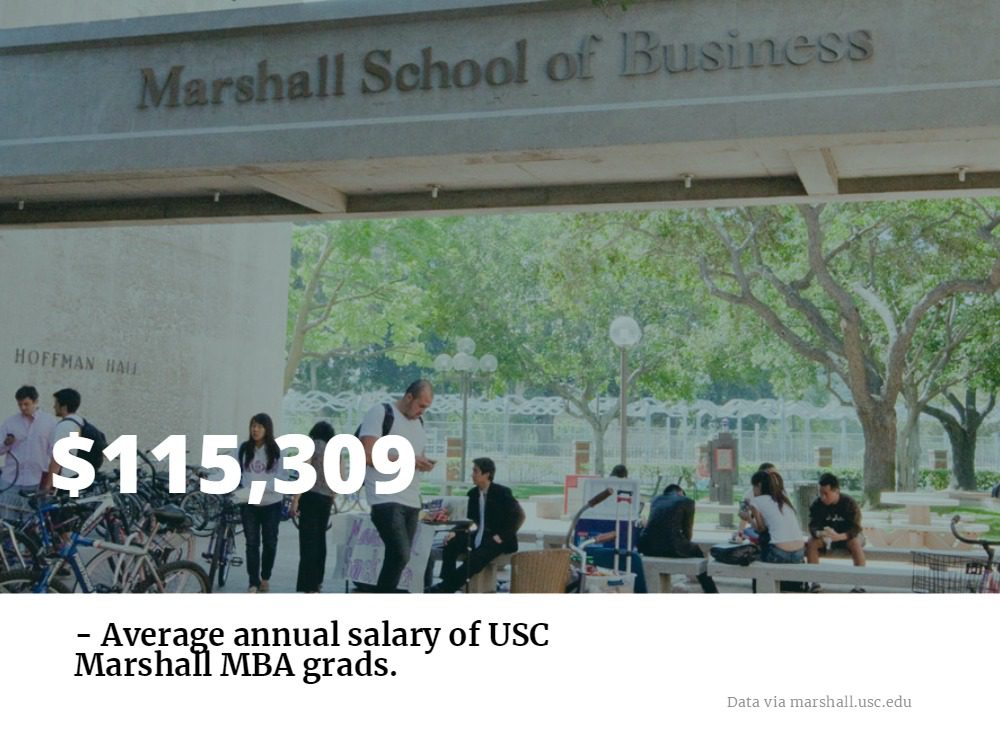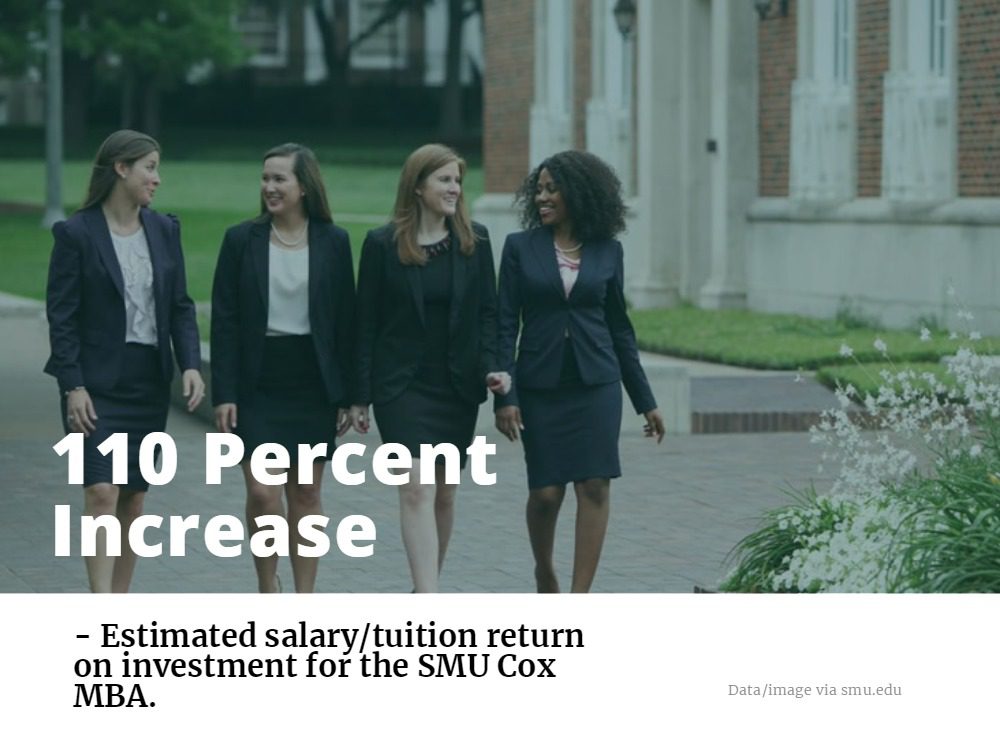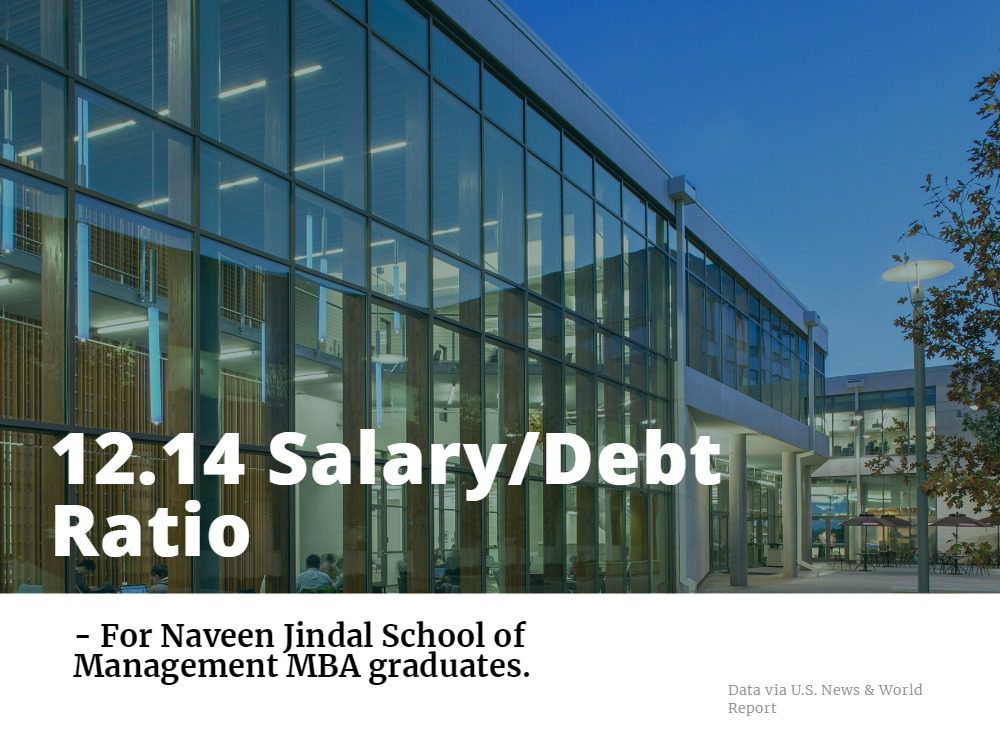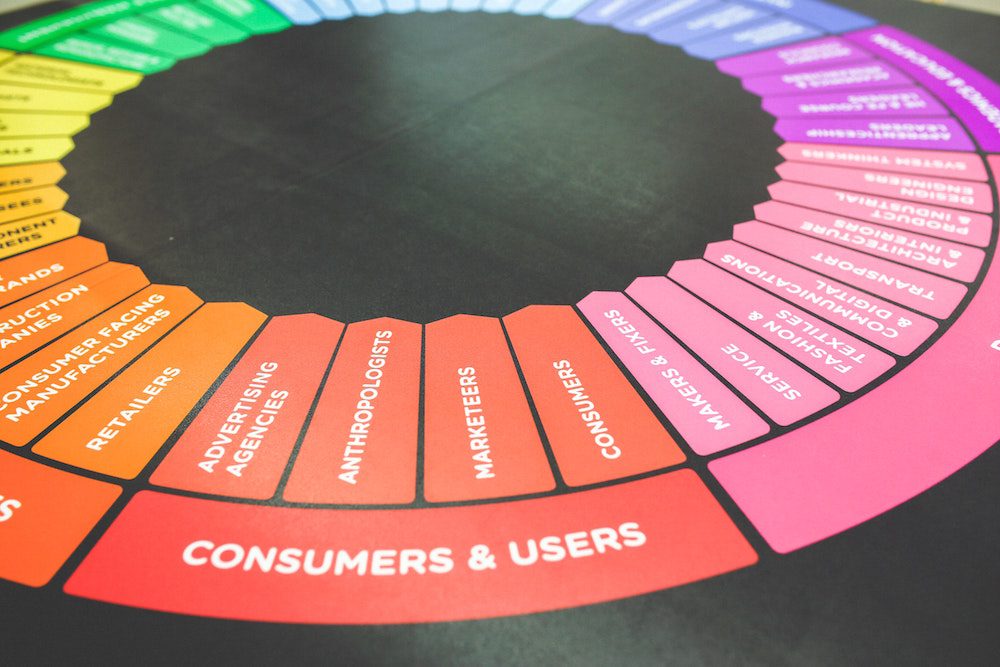Lehigh MBA Success, and More – New York City News

Let’s explore some of the most interesting stories that have emerged from New York business schools this week.
Extraordinary Outcomes for Lehigh’s 1-MBA and M2 Programs – Lehigh College of Business and Economics
This past spring saw Lehigh graduates from the College of Business and Economics’ inaugural 1-MBA (1-year full-time MBA) cohort, as well as the third cohort of its M2 (MS in Management) complete the transition from the classroom to the boardroom.
Employers like Tesla, QVC, and Hubspot snatched up 1-MBA graduates while Amazon, Bloomberg, IBM, KPMG, and more extended offers to nearly 80 percent of M2 graduates. This statistic is very much in line with figures from the 2017 graduates of the M2 program—96 percent of which were employed within three months of graduation by the likes of Deloitte, Vanguard, IBM, and Amazon.
You can read more about the recently Lehigh MBA success here.
School of Management Students Provide Support to Businesses Looking to Export – Binghamton SOM Blog
This semester, Binghamton SOM students took part in the six-month ExportNY “Launch into the Global Marketplace” program, a unique offering that adjunct assistant professor founding director of the Center for International Business Advancement (CIBA) Elena Iankova developed to help give “regional businesses [the] knowledge and resources needed to export their products.”
The basic idea that underlies the “Launch into the Global Marketplace” program is that students research, consult, and support the export plans of participating businesses. Iankova explains: “It’s a two-way street. The students provide the companies research assistance and consultation, and the companies provide the students real-life experiential learning opportunities, helping them develop their management research and consulting skills.”
The program is a partnership between the CIBA and the Alliance for Manufacturing & Technology (AM&T), the Global New York Program of Empire State Development, and the U.S. Commercial Service and the Small Business Administration.
One of the participating companies, Awestruck Ciders, “produces hard ciders from NY state apples” and hopes to export its product to the South African market. Co-founder Patti Wilcox writes: “We think it’s important to the local economy to expand our view of the market on a global scale. We’re fascinated by this idea of an international cultural exchange, and we think doing so commercially is very valuable.”
You can read more about the program here.
The Endless Scroll: How to Tell if You’re a Tech Addict – PC Mag
Just recently, PC Mag dropped its lengthy article “The Endless Scroll: How to Tell if You’re a Tech Addict,” written by Rob Marvin.
In the piece, Marvin highlights Irresistible: The Rise of Addictive Technology and the Business of Keeping Us Hooked from NYU Stern School of Business professor Adam Alter, who doesn’t mince his words when it comes to tech addiction.
“There’s a myth that there’s something different about people with addictions from people without addictions,” Alter explained in his interview with Marvin. “Right now, if you are a person who doesn’t have an addiction, does that make you in some qualitative or categorical way different from people who do? The more I’ve studied this, the more I realized that just isn’t true.”

“Right now, if you are a person who doesn’t have an addiction, does that make you in some qualitative or categorical way different from people who do? The more I’ve studied this, the more I realized that just isn’t true.” – NYU Stern professor Adam Alter, interviewed by PC Mag / Photo via PC Mag
You can read more from Marvin’s excellent piece, out now, over at PC Mag.
The 5 Highest Paying Marketing Jobs for MBAs

Marketing is one of the most popular career paths for an MBA—2.9 times as popular as other careers according to PayScale—and with good reason: about 69 percent of marketing MBAs report a high level of job satisfaction. Besides, marketing MBAs are paid well. While the starting median pay (with a max of five years of experience) is only $55,700, after ten years, pay jumps to $116,000—a 108 percent growth between starting and mid-career salary.
The question then is, “What are the highest paying marketing jobs for MBAs?” The answer isn’t as cut and dry as you would think. It varies significantly between companies, level of experience, location, and job type.
Companies Recruiting Marketing MBAs
Where you work can have as a profound of an impact on your pay as your actual job function. That’s because larger companies tend to pay higher salaries, and how a particular company views the marketing department can also influence how much they are willing to pay. Below are five of the highest paying marketing jobs, according to PayScale.
- Microsoft Corp: $95,146 – $152,605
- IBM Corp: $91,158 – $132,500
- Dell, Inc: $77,511 – $130,000
- Starbucks Corp: $115,436 – $121,097
- Amazon: $90,000 – $122,500
Experience
According to PayScale, experience plays a big role in how much you earn as a marketing professional. After graduating with an MBA in business and marketing, the average salary you can expect based on your years worked is:
- Less than one year: $54,721
- One to four years: $59,343
- Five to nine years: $81,097
- Ten to 19 years: $104,070
- Over 20 years: $124,631
Location
Where you work, can have a significant impact on what you’re worth. As always, large cities tend to pay more, but that’s still not always a guarantee. So, where are the most popular cities for marketing professionals and how much do they pay (average salary)?
- Seattle, WA: $119,266
- San Francisco, CA: $118,330
- Boston, MA: $104,217
- Dallas, TX: $100,237
- NYC, NY: $96,387

The Top MBA Marketing Jobs
There are dozens of different marketing positions that an MBA graduate can choose. If you’re looking to choose the highest paying marketing job, then you’ll want to choose one of the following five jobs. These are the top salaried positions for marketing MBAs (just be sure to keep in mind the company, location, and your experience if you want to earn the most money).
-
Vice President Marketing ($100,000 – $186,000)
As a Vice President of Marketing, you will offten be responsible for reporting your company’s marketing efforts to the board of directors or other highly-placed executives. Your main responsibility will be to determine the best strategies to improve your market-shares for goods and services sold. You’ll also be responsible for your company’s brand, including presenting the company’s assets and products. Common tasks include:
- Forecasting and strategic planning.
- Directing and setting the strategic direction of the marketing program.
- Overseeing all marketing staff operations, policies, and plans.
For MBA graduates, becoming a VP of Marketing is the highest paying position you can attain. On average, you’ll earn $143,571 plus a bonus between $4,939 and $49,935. As for where you’ll get paid the most, look for jobs in:
- San Francisco: 21 percent more
- Charlotte: 11 percent more
- Boston: 10 percent more
-
Marketing Director ($66,000 – $158,000)
Marketing Directors are responsible for managing and directing all marketing tasks. You’ll oversee the many marketing professionals under your purview and ensure that they meet company goals, requirements, and needs. In addition, you’ll be responsible for developing marketing projects, running successful marketing campaigns, monitoring budgets, resolving team issues, and communicating with clients, vendors, and other team managers within your company. Common tasks include:
- Overseeing marketing staff, advertising budget, and business planning.
- Directing and planning marketing strategies.
- Acting as the marketing subject matter expert.
On average, a Marketing Director with an MBA can expect to earn $106,684. However, that salary can greatly increase depending on the company you work for. The top companies are:
- Medtronic, Inc: $175,000
- Microsoft: $164,848
- IBM: $147,215
-
Senior Marketing Manager ($73,000 – $147,000)
As a Senior Marketing Manager, you’re in a middle-management position. Typically, you report to the Marketing Director and are responsible for researching target markets, providing feedback on product development, running product teams, planning display marketing, and working with various other teams to develop marketing objectives and goals. Common tasks include:
- Managing training and development of marketing staff.
- Managing and analyzing marketing programs for optimized results.
- Developing, recommending, and implementing marketing programs and campaigns.
On average, you can expect to earn $111,476. To earn the most, you’ll want to look at jobs at:
- Microsoft: $138,598
- Medtronic, Inc: $128,104
- Amazon.com: $126,774
-
Brand Manager ($68,000 – $132,000)
As a Brand Manager, you’ll be responsible for many of the customer-facing operations in the marketing department. Your job will be to control and manage all the ways that the company is exposed to the public including consumer attitudes, staff communication, and more. Common tasks include:
- Leading the brand strategy.
- Researching customer attitudes and developing plans and projects to support positive experiences.
- Leading consumer communication in each marketplace.
On average, a Brand Manager earns $102,309 as an MBA graduate with a yearly bonus between $795 and $19,644. To earn the most money, you’ll want to work in:
- San Francisco: 41 percent more
- Seattle: 36 percent more
- Chicago: 16 percent more
-
Product Marketing Manager ($60,000 – $130,000)
A Product Marketing Manager knows the company’s products inside and out. They are responsible for conducting research and determining a strategy for selling each product to generate the highest revenues. You’ll also be responsible for overseeing how each product is seen by the public from advertising to press releases and more. Common tasks include:
- Developing product marketing strategies to maximize revenue.
- Researching consumer opinions on products to aid performance.
- Collaborating with design to meet consumer expectations.
On average, a Product Marketing Manager will earn $105,942, which is pretty consistent between companies. The best paying companies are:
- Google: $115,723
- Microsoft: $115,481
- AT&T: $112,020
What San Diego MBAs Offer the Best Return on Investment?

Attending a Master of Business Administration program in San Diego sounds like a great idea. There’s great weather year round, beautiful beaches, and you get to enjoy the laid-back California attitude. But do you get a good return on your investment (ROI) going to school in San Diego?
The ROI of your MBA program can be difficult to determine considering the many factors that come into play. Not only do you need to compare the cost of tuition and expected salary upon graduation from each school, but you also have to take into account the cost of living where you go to school and your salary change pre- to post-MBA.
In this article, we’re going to take a look at the best San Diego MBA programs to get the highest return on your investment.
Fowler College of Business Administration – SDSU

MBA students who chose to attend the Fowler College of Business Administration at SDSU can expect affordable tuition and decent job prospects. These MBA graduates have one of the best returns on their investments in San Diego.
Over 70 percent of the most recent Fowler MBA class had a job within three months of graduation, and that percentage increased to 82.94 percent at six months post graduation. MBA students who were employed found jobs at GEICO, EY, PepsiCo, HSBC Group, Qualcomm, and more.
Tuition
Tuition at Fowler is very affordable. In fact, full-time Master of Business Administration students who are California residents can expect to pay just $29,938 over the course of their degree—$7,223 a semester. Non-California residents can expect to pay a little more, approximately $47,758 over two years.
Salary
The mean starting salary for MBA graduates at Fowler is $61,467.
ROI
The salary-to-debt ratio for Fowler MBA graduates who are residents of California is .487, which means that Fowler MBAs can expect to pay off their debt in just the first year. For non-California residents, the ratio is .777, which is still less than a year to pay off the debt.
University of San Diego School of Business Administration
Choosing to attend the University of San Diego School of Business Administration is a fairly reliable choice for return on investment. 83 percent of MBA graduates can expect to be employed three months post graduation at top companies including Amazon, Deloitte, Intel, Bank of America, eBay, Boston Consulting Group, and 21st Century Fox. But what does it look like when you compare tuition to expected salary?
Tuition
Tuition is a bit pricey compared to the other San Diego business schools. For an MBA student, it costs $1,475 per unit with 56 units required. That equals around $82,600 for tuition over two years. In addition, MBA students can expect $1,153.50 a semester for health insurance coverage with approximately $200 in additional fees. Total, over the two years, MBA students can expect to pay $87,614 for tuition and fees.
Salary
Upon graduation, MBA students at USD can expect an average starting salary of $72,363 with a range of $50,000 – $100,000.
ROI
The salary-to-debt ratio for a USD MBA graduate is 1.21, indicating that it would take you only 1.2 years to earn back what you paid for the program if every dime of your salary went to paying off your tuition.
Rady School of Management – UC San Diego
The Rady School of Management is one of the more expensive Master of Business Administration programs in San Diego, at the same time it has some of the best job prospects. Three months post-graduation, 82 percent of Rady MBA graduates accepted employment, and 10 percent started their own business for a total employment rate of 92 percent. Those individuals accepted jobs at such companies as IBM, Boeing, Cisco Systems, Amazon, Tesla Motors, Ernst & Young, Gartner, and Deloitte.
Tuition
Tuition for full-time MBA students who are also California residents is $48,961 a year—$97,922 total. For non-residents, tuition costs $55,546 a year or $111,092 total. Other non-tuition fees including campus fees and health insurance can cost an additional $4,000 a year or $8,000 over the course of the program.
Salary
Rady MBA graduates, on average, earn $84,335 as a starting salary ($87,500 median).
ROI
The salary-to-debt ratio for the Rady School Master of Business Administration program is 1.255 for California residents and 1.41 for non-California residents.
Other San Diego MBA Programs
As for the three other Master of Business Administration programs available in San Diego, not much information is provided.
- Fermanian School of Business – Point Loma Nazarene University: The cost of tuition is $825 a unit for 42 units, for a total cost of $34,650 for twelve months. So, as long as you earn more post-MBA than $40,000 it’s a good investment, though little post-MBA graduation employment information is available.
- California International Business University (CIBU): CIBU costs approximately $26,000 to earn a full-time MBA. No employment information is provided.
- California School of Management & Leadership – Alliant University: An MBA at Alliant costs $698 per unit for a total of 36 to 42 units—$25,128 to $29,316 total. No employment information is provided.
Top MBA Recruiters: IBM

Finding a job after graduating with your MBA isn’t typically the issue. There are hundreds of industries and companies that would be happy to hire a freshly minted MBA graduate. The trouble is choosing the right company and job for you. If IBM hasn’t been on your list of top tech companies, maybe it should be.
About IBM
Headquartered in Armonk, New York—north of NYC and bordering Connecticut—IBM (International Business Machines Corporation) is a multinational technology company that operates in over 170 countries worldwide. It got its start in 1911, and since that time has manufactured leading-edge computer hardware, middleware, and software. The company also provides hosting and consulting services across the technology industry on topics ranging from mainframe computers to nanotechnology.
IBM is dedicated to a constant state of innovation, which is evidenced by its performance. In 2017, the company earned $79.1 billion in revenue and demonstrated that it’s still a cutting-edge technology company by expanding on many of its services including the IBM Cloud—who’s revenue accounted for 21 percent of total revenue. Other top products from the company include:
- z14: The world’s most powerful transaction system that encrypts data at scale, all the time.
- POWER9: POWER9 systems and software cut training times by 4x and boost AI accuracy.
- IBM Q Experience: The world’s first (and only) prototype 50-qubit system, which leads in quantum computing.
And IBM is always looking for new ways to be competitive. Last year, the company spent $5.6 billion on research and development. And in 2016, IBM filed 8,000 patents (the most of any company). It’s a company that is moving forward quickly, which can make it an exciting prospect for many MBA students. So, why should you work for IBM?
Why IBM?
Nicknamed Big Blue, the appeal of working for a company like IBM is fairly obvious. It’s one of the world’s largest employers with over 380,000 employees as of 2016, and those employees are top notch. Throughout the company’s history, employees have been awarded:
- Five Nobel Prizes
- Six Turing Awards
- Ten National Medals of Technology
- Five National Medals of Science
And some former IBM employees include Apple CEO Tim Cook, Microsoft Chairman John W. Thompson, SAP Co-Founder Hasso Plattner, and former Lenovo CEO Steve Ward.
In addition, if you choose to work for IBM, you have the opportunity to work almost anywhere in the world. The company has several main campuses across the globe including:
- Austin, Texas
- Raleigh-Durham, North Carolina
- Rochester, Minnesota
- New York City, New York
- Silicon Valley, California
- Rome, Italy
- Winchester, UK
- Johannesburg, South Africa
- Tokyo, Japan
And that’s just to name a few of IBM’s premier locations. And no matter where you land a job, you’ll be called an “IBMer” and receive a myriad of benefits including group life insurance, survivor benefits, paid vacation, and more.
In 2017, IBM was also recognized by Mogul as one of the Top 100 Innovators in Diversity & Inclusion as well as one of the Top 100 Companies for Millennial Women. And in 2015, IBM was named to Working Mother’s 100 Best Companies list for the 30th consecutive year.
Landing a Job at IBM
So, how do you land a job at IBM as a new MBA graduate? There are a few options. The first is the IBM General Management Leadership Development Program (GMLDP), which is the premier leadership development program for top MBA graduates. If you’re accepted, you’re hired into IBM on an accelerated path to leadership with opportunities across many of IBM’s areas including cloud, Watson, digital, offering management, and consulting.
And speaking of consulting, MBA graduates also have the opportunity to work as consultants in IBM Global Business Services. Within this area, MBA consultants are given a chance to combine sophisticated analytics with market-leading global solutions to provide deep industry insight and expertise alongside an actionable plan.
At any given time, there are over 5,000 job openings available in every industry and area from project management to marketing. Some available jobs for MBA graduates include:
- Strategy Consultant
- Projects Manager
- Account Executive
- Offering Manager
- Associate Partner for Tech/Data Strategy
- Digital Business Consultant
- Business Analyst
Meet an Employee
According to Nish Parekh, who leads IBM’s client and partner programming teaching businesses how to use IBM’s Watson technology, she’s living her dream. With Watson, she gets to work on the leading edge of AI technology and touch a variety of industries, which is exciting in and of itself.
“They bring in a lot of people from different parts of IBM, as well as some folks from outside IBM. Seeing the mix and all these people work together is fun. I get to learn from them,” Parekh told Fast Company. “Also, one of the greatest things about my job is the ability to stay on top of the latest and greatest technology. AI is up and coming; it’s exciting to be a part of that moment.”
The Best Long Angeles MBA Return on Investment Bets

Return on Investment (ROI) is one of the most important factors a prospective MBA can take into consideration when choosing the right business school.
Of course, the true value of each MBA program may ultimately be something impossible to measure. The kind of connections made through professional networking, the soft skills that students attain which help them navigate through both their personal and professional life—these aren’t things that can be easily quantified. But, thankfully, factors like average salary increase, rate of post-graduate employment and the overall tuition of a program are. And these numbers can help students start to better see an overall picture of what each MBA is worth.
The Best Long Angeles MBA Return on Investment
The Marshall School of Business – USC
The Marshall School of Business at the University of Southern California is consistently one of the top ranked MBA programs in the state of California and even throughout the country. Specific ROI aside, these sorts of honors should also be a factor when considering the overall value of the program: for example, Marshall has been named the third best program for “Most Satisfied Business School Graduates” by Forbes and sixth on The Economist’s ranking of “Best Alumni Networks.”
Based on tuition for the 2017-18 school year, the total expense (tuition, fees and living expenses included) to pursue a full-time MBA at Marshall would be $95,881 for the first year and $82,522 for the second, for a total of $178,403.
Now take into consideration the fact that the average salary for graduates of Marshall’s full-time MBA program within three months of graduation is $115,309, and that the large majority of job offers (38 percent) for MBA students came from on-campus recruiting or job postings through the university. The second highest source of employment (21 percent) came from internships held while in the MBA program. Furthermore, a number of top organizations—such as Apple, AT&T, and Walt Disney Studios—hired the graduates of Marshall’s 2016 MBA class. All of these factors boost the overall ROI of Marshall’s program, making it one of the top valued programs in L.A.—even with the high price tag.

Anderson School of Management – UCLA
The Anderson School of Management at UCLA is another program which offers a high ROI when considering the types of opportunities and salaries available to students after graduation. While the tuition cost is certainly high—roughly $194,220 (including fees and living expenses) for the the two years of the program, the benefits to students are undeniable.
A look at the full-time employment report for the most recent MBA class finds that 92.4 percent of students were offered full-time employment within just three months of graduation, with 87.7 percent acceptances. By far (72.2 percent) , students found their employment opportunities through Anderson-facilitated resources, such as internships, on-campus recruiting, or from UCLA Anderson alumni and classmates.
The salaries for graduating Anderson students also reveals a positive trend: the average post-graduate compensation was $118,150, with 70.6 percent of students earning signing bonuses of up to $89,500. The connections sewn by Anderson internships and alumnae also reveal a significant payoff in the types of organizations hiring Anderson alum: companies like NBC Universal, IBM, Barclays, Google, and other major corporations now have Anderson MBA graduates on staff.
The Paul Merage School of Business – University of California, Irvine
The UC Irvine Paul Merage School of Business is one of the top business schools in the Los Angeles metro area, as evidenced by its consistently high rankings from various publications, such as the Financial Times and U.S. News & World Report.
With the program’s recognition for its high lifetime earnings combined with the relatively low cost the degree, it’s no surprise that that the program at UC Irvine produces a high return on investment. The estimated total annual cost of an MBA at Merage ranges from $67,422—$83,967, depending on if you whether or not you are a resident of California and whether or not you will be using campus. This is compared with an average post-graduate salary of $97,808 for the 2017 graduating class. About 50 percent of all students were employed by graduation, and 81 percent held full-time jobs within three months.
Graziado School of Business and Management – Pepperdine University
One of the reasons Pepperdine’s Graziado School of Business boasts such a high return on investment is the many different formats in which students can pursue a full-time degree. With the opportunity to take the full-time MBA over the course of 12, 15, or 20 months, the Graziado MBA typically costs less overall ($74,250 for the 12-month program, $99,000 for all others) and means less time away from a full-time paycheck.
Combine this with the success rate of 82 percent of students accepting job within three months after graduation and a $120,000 starting salary (at highest), and its understandable why Graziado graduates find incredible value in their degree.
Finding the Best Return On Investment for Your MBA: Dallas

Choosing the right MBA program can feel overwhelming. With nearly 800 accredited business schools in the United States, the idea of wading through the information on every program is intimidating to say the least. A variety of features, such as a school rankings, internship opportunities, and an extensive alumni network may be huge factors where you choose to earn your master’s. But one of the most important variables to consider is a program’s return on investment (ROI). It is essential to pick a school with an enviable ROI, as this will ensure that the time and money you dedicate to earning your MBA are not for naught. Given the considerable cost of higher education, it is important to attend the school that will give you the most bang for your buck.
The Best Dallas MBA Return on Investment
Cox School of Business – Southern Methodist University
At the SMU Cox School of Business, students can expect an admirable rate of return on the cost of education. The tuition rate of $45,976 per year for the two-year program is among the most enviable in the U.S. The average graduating salary for MBA’s was $96,587, which is more than double the yearly cost of tuition. This school is also ideal for students hoping to global perspective, as students at Cox have the opportunity to participate in an international MBA exchange program, which allows them to continue their education in Latin America, Europe, Australia, or Asia. Simply put, SMU Cox doesn’t just provide one of the best Dallas MBA return on investment opportunities, but one of the best in the country overall.

Hankamer School of Business – Baylor University
Baylor’s Hanker School of Business is another excellent option for students seeking a respectable ROI. The full-time program can span from 16 to 21 months, with a tuition of $20,597 per semester (over about three to four semesters, depending on course load and core requirements met during undergrad). According to Hankamer’s website, the average starting salary for MBA graduates in 2017 was $73,314. Additionally, Hankamer’s Career Management team is nationally-ranked, and can provide extra support for students seeking help with job placement.
McCombs School of Business – University of Texas at Austin
The MBA program at the McCombs School of Business currently costs $30,750 per semester, bringing the total tuition to about $123,000. The cost will is steeper for non-residents (closer to $189,000). Though the cost of tuition at McCombs is nothing to sneer at, neither is the reward. In fact, the most recent MBA class had an impressive average starting salary of $117,068. McCombs, which is also one of the largest business schools on this list, also has an extensive alumni network, which includes the CEOs of Southwest Airlines (Gary C. Kelly) and Heinz (William R. Johnson).
Naveen Jindal School of Management – University of Texas at Dallas
Like many of the schools we mentioned on this list, the Naveen Jindal School of Management has a solid track record when it comes to ROI. Tuition for the full-time MBA program is just $32,998 for in-state residents and $64,332 for non-residents. In addition to the reasonable cost, the school’s website states that 80 percent of students receive scholarships that cover an average of 45 percent of the total program cost. In 2017, U.S. News & World Report stated that the school’s MBA program, “… had the highest salary-to-debt ratio among ranked business schools.” According to the article, average starting salary for graduates (of those who were employed within three months of graduation) was $86,644.

Neeley School of Business – Texas Christian University
At TCU’s Neeley School of Business, the average starting salary for the most recent graduates of the full-time MBA program was $93,093, surpassing the total tuition of $88,020. Moreover, Neeley boasts a 92 percent employment rate 90 days after graduation. Recent graduates have taken jobs at renowned companies like Ernst & Young and IBM. In addition to standard core classes, Neeley introduces a great deal of experiential learning into the curriculum. At the end of their first year, students participate in an Integrative Project that offers them the opportunity to apply their skills to real-world business obstacles via a week-long simulation.

